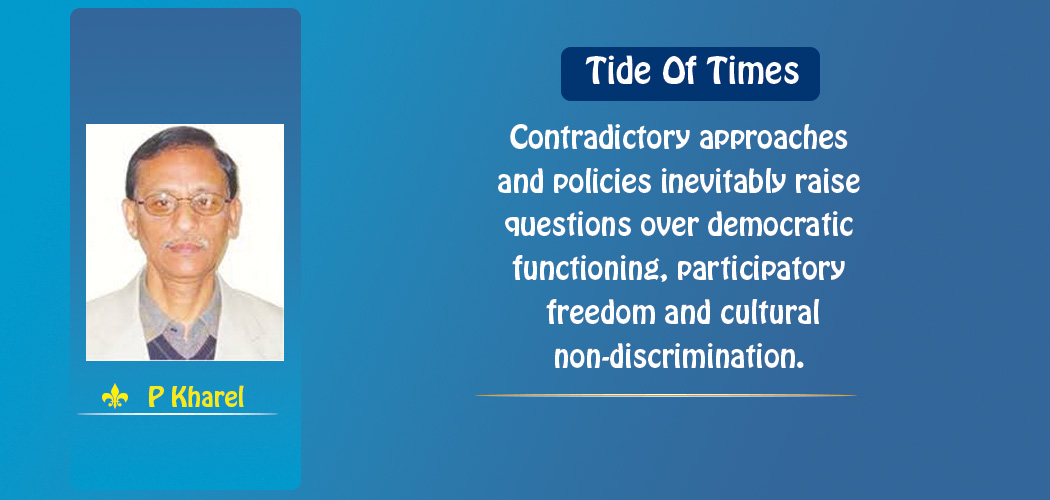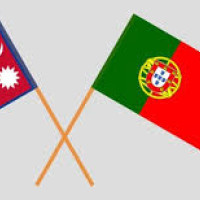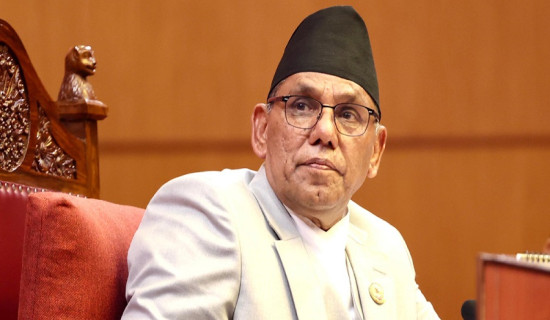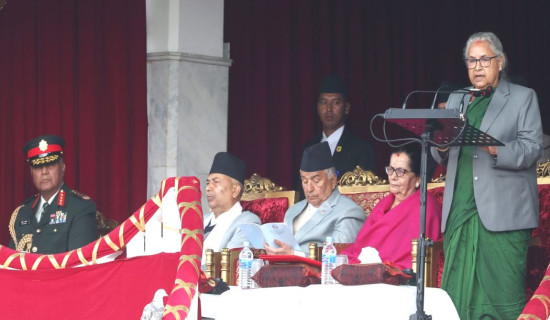- Thursday, 19 February 2026
The Colour Of Anglosphere
P Kharel
Whenever the “Five Eyes”—Australia, New Zealand, the United Kingdom, the United States and Canada—find their core interests at risk, the language of the five economically prominent countries, invariably ruled by English speaking Anglo-Saxons, is blatantly bellicose and biased, even if in various subtle and not so subtle guises.
Maintaining close political, diplomatic and military cooperation, their common antecedents can be traced back to the colonial days, when English merchants and others ventured into unknown lands and founded settlements of their own while subjecting the indigenous populations to brutal exploitation and suppression. In the process, the native populations were severely diminished and their culture vanished.
Today, not all buy everything the Five Eyes sight and target. The reasons are varied, depending upon individual states’ geostrategic positions, core interests and ambitions. Communist China echoes one of the many views floated by various quarters regarding the group of five’s purpose and activity. The Global Times calls it an “axis of white supremacy”. Racism at its worst was a major characteristic of the colonial expansionists for more than 400 years.
The response of the United States President Joe Biden to having had to suffer the humiliation of his troops leaving Afghanistan after 21 years of fierce fighting failed to produce the breakthrough Washington wanted has been regret and bitter. It exposed that the world’s most powerful nation was not absolutely powerful after all. It could be tired out even by poor, ill-equipped but determined forces, such as the Taliban, which withstood the might of the superpower.
Expensive & embarrassing
For that matter the now-defunct Soviet Union faced a losing war with the Mujahedeen guerrillas in the 1980s and quit its neighbouring country’s territory in 1990. In fact, some of the major Western powers supported the anti-Soviet Afghan militant outfits with money, machine and weapons — much of it funnelled through Pakistan. That was the time when one-third of the Afghan people lived as refugees, mostly in neighbouring Iran and Pakistan.
Scholars and the media in the capitalist world had recalled that the Afghans had, throughout history, rejected, repelled and defeated foreign forces that stepped onto their territories. However, the height of irony was that the US and its allies repeated the very error they had for years pointed out against the Soviets or during academic discourses.
More than two dozen countries, led by the US, invaded Afghanistan in 2001, only to prove history right once again. The 21-year war witnessed the invading forces spending more than one and a half trillion dollars and some 200,000 lives lost in that poverty-stricken, least developed, landlocked and overwhelmingly Muslim majority country, ostensibly to flush out the Taliban that had allowed Osama bin Laden’s Al-Qaeda units to operate from its territory.
Finally, in 2021, the foreign troops were recalled home and the very Taliban they had forced out of the seat of power in Kabul returned in triumph. Mohammad Ashraf Ghani, propped up by foreign governments involved in the long tragic action, abandoned his people, supporters and troops when the Taliban was about to enter the capital city’s gates. No one, today, mentions the name of Ghani’s predecessor Hamid Karzai, who was equally supported by the foreign powers. Although the invading forces initially said their mission was to defeat the Islamic State, they extended their stay by a decade after the Al Qaeda leader Osama bin Laden was killed by a US special raiding squad in Pakistan — and not Afghanistan.
For much of the West, anyone from other continents and other cultures, is a regional or national figure but rarely a global figure. That is echoed also by the manner in which the Western media describe China, world’s No. 2 economy, as “an Asian economic powerhouse”. The World Bank assesses that China will overtake the US within this decade. Cultural colonialism or territorial imperialism destroyed long held traditions and breached national boundaries without qualms —for sheer profits by any means, legit or otherwise. Fragments of its earlier pride remain firmly rooted to date.
When the renowned singer Lata Mangeshkar died at age 92 this year, the Reuters news agency described her as someone who “defined music for generations of her countrymen”. The British news outlet’s narrow view spilled over the story it produced. Having rendered some 15,000 songs, Lata is highly esteemed not only by people in India but music lovers in most countries.
Conspicuous contrast
In February, several major Western news outlets termed groups demanding restrictions on wearing the hijab in classrooms as hardline Hindu. Some groups did call for applying in their areas, too, a ban on the on the hijab, a traditional Islamic head-scarf, upheld by a court in the Karnataka state. A number of ministers in Prime Minister Narendra Modi’s government lauded the court verdict and emphasised the need for students to avoid wearing religious clothing in class.
Some Hindu religious groups argued that just as the hijab is not allowed in the defence forces, police and government offices, the same code should apply to educational institutions as well. Others regard the demand for banning the hijab from various institutions as a way of marginalising India’s Muslim community that constitutes 13 per cent of the Hindu-majority country’s 1.35 billion population. .
A stark anomaly in the discussion is that regulations in some European countries preventing the hijab and other religious symbols from being displayed at educational institutions in the overwhelmingly Christian majority country is not interpreted as a communal colour whereas some other countries doing the same are slighted as communal and fanaticism. Contradictory approaches and policies inevitably raise questions over democratic functioning, participatory freedom and cultural non-discrimination.
(Professor Kharel specialises in political communication.)








-square-thumb.jpg)






